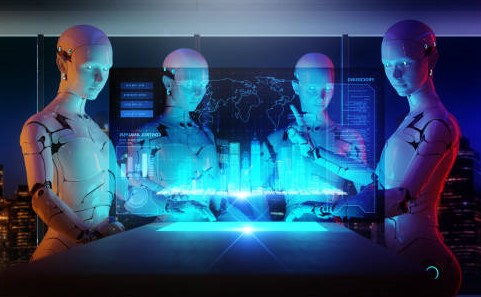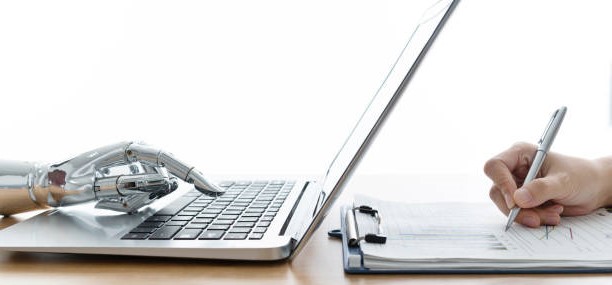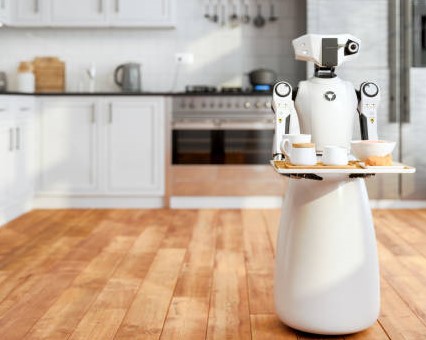Introduction
As we enter a new era of technological advancement, the role of artificial intelligence (AI) and automation in the workplace has become increasingly prevalent. With machines taking on more complex tasks and human labor is augmented or replaced by machines, the future of work is rapidly evolving. From manufacturing to customer service, AI and automation are transforming industries and creating new opportunities for businesses to improve efficiency and productivity. But what does this mean for workers and their jobs? Will AI and automation bring about a utopian future where machines do all the work, or are there darker implications to consider? In this article, we’ll explore the potential impact of AI and automation on the future of work and what it means for businesses and workers alike.
About Artificial Intelligence at Work
As technology continues to evolve at an unprecedented rate, the role of artificial intelligence (AI) and automation in the workplace has become increasingly prevalent. From manufacturing to customer service, AI and automation are transforming industries and creating new opportunities for businesses to improve efficiency and productivity. However, this shift also raises important questions about the future of work, and what it will mean for workers and their jobs.
One of the most significant impacts of AI and automation on the future of work is the potential for machines to take on increasingly complex tasks. As machine learning algorithms become more sophisticated, they can handle tasks previously thought to require human intelligence, such as language translation, image recognition, and decision-making. This could lead to the displacement of workers in industries ranging from customer service to healthcare.
Also, it is important to note that AI and automation also have the potential to augment human labor, rather than replace it. By automating repetitive or mundane tasks, workers can focus on more complex and creative work that requires human skills such as critical thinking, problem-solving, and empathy. This could lead to a future where humans and machines work together in complementary ways to achieve greater productivity and innovation.
Another potential impact of AI and automation on the future of work is the shift towards a more flexible and remote workforce. With the rise of digital technologies, more and more jobs can be performed from anywhere in the world, and on a flexible schedule. This could lead to more excellent work-life balance for employees, reduced costs, and increased efficiency for businesses.
However, the shift towards a more flexible and remote workforce also raises important questions about job security and workers’ rights. As jobs become more ephemeral and distributed, workers may need to rely on new forms of social safety net and job protections to ensure their economic stability.
Pros and Cons of Artificial Intelligence at work
Pros of AI in work:
- Increased efficiency: AI can process and analyze vast amounts of data faster and more accurately than humans, allowing for faster decision-making and increased productivity.
- Cost savings: By automating repetitive or routine tasks, AI can reduce labor costs and increase efficiency, resulting in cost savings.
- Improved accuracy: AI systems can perform tasks with a higher degree of accuracy and consistency than humans, reducing errors and improving quality.
- Enhanced customer experience: AI can provide personalized recommendations and support, improving customer experience and satisfaction.
- New business opportunities: AI can help businesses identify new opportunities and revenue streams by analyzing data and trends.
Cons of AI in work:
- Job displacement: AI may automate tasks traditionally performed by humans, leading to job displacement and a potential skills gap.
- Bias: AI systems can inherit the biases of their creators or the data they are trained on, leading to discriminatory outcomes.
- Lack of creativity: While AI systems can automate routine tasks, they may not be able to replicate the creative or intuitive aspects of certain jobs.
- Security risks: AI systems may be vulnerable to cyber attacks or hacking, posing security risks to businesses and individuals.
- Ethical concerns: As AI becomes more integrated into the workplace, there are ethical concerns around privacy, accountability, and transparency.
Thoughts
As AI and automation continue to rapidly advance, there is no doubt that they will significantly impact the future of work. While these technologies offer many advantages, such as increased efficiency and cost savings, they also pose significant challenges, such as job displacement and ethical concerns. We need to embrace these technologies while also recognizing the potential risks and working to address them. Ultimately, the future of work will depend on our ability to balance the benefits of automation with the needs and well-being of workers and society as a whole.



